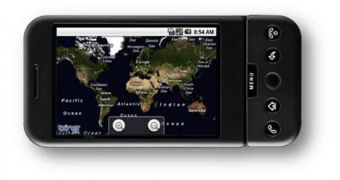An open-source Bing Maps SDK for Android has been released on Codeplex, coming from InKnowledge and aimed at offering developers the possibility to benefit from map controls in their Android applications.
The new SDK includes a series of libraries and assets that were meant to offer app builders the possibility to come up with Bing Maps applications. These libraries were put together in a sample application that can be used as the base for a new software.
Through the new SDK, app developers have the possibility to enjoy enhanced flexibility through direct access to the code base.
The new Bing Maps Android SDK was built on Bing Maps AJAX Control 7.0, and comes with functionalities wrapped with Java code, which eliminates the need of writing JavaScript code.
Not only would the SDK offer Android developers the possibility to use the control without having to know JavaScript code, but it would also offer simple and straightforward access to Bing Spatial Data Services and Bing Maps REST services through specific libraries.
Some of the main features of the new Bing Maps SDK for Android include: - Touch controls added to support pinch to zoom, and double tap to zoom - Requires Bing Maps Key - Supports Pushpins, Polylines, Polygons, EntityCollections, and TileLayers. - Libraries for accessing Bing Maps REST service supports Geocoding (Address and query searches), Reverse Geocoding, Routing with support for all route options. - Libraries for accessing Bing Spatial Data service supports FindByArea, FindByID, and FindByProperty. - All service calls have an Asynchronous task which make requests to Bing Servers and parses the response on a background tread. - Works in any orientation. - Infobox support. - Location Details view. - Support for GeoRSS files.
The touch controls available with the SDK would include pinch-to-zoom and double-tap-to-zoom. Not to mention that the tool comes with deep zoom-like effect, offering a great experience through scaling up map tiles until the requested tile is loaded.
For the time being, however, the SDK is only in its early stages, though is should receive further enhancements in the not too far future. It should add sample UI for Location Details view, support for localization, UI controls for rotating Bird’s eye view, documentation of code, and clustering in new releases.
Those of you interested in learning a little more on the new SDK should have a look at the video embedded below, or can head to Codeplex here. The app is available for download there as well.

 14 DAY TRIAL //
14 DAY TRIAL //